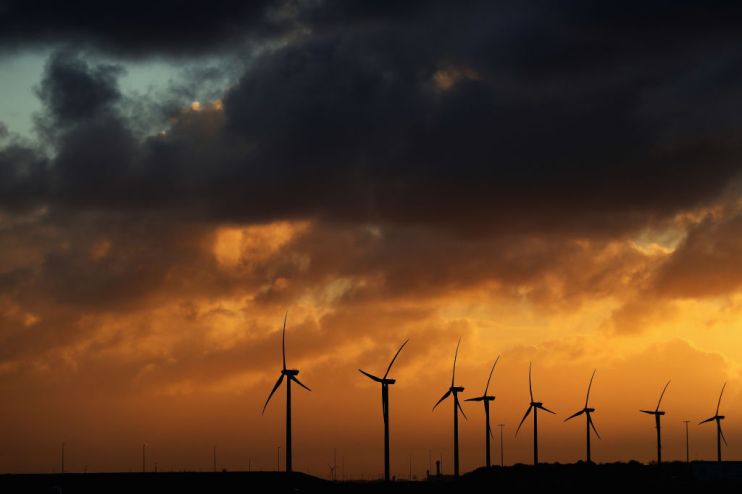World must invest $131 trillion in clean energy to hit Paris targets

The world must invest $131 trillion (£94 trillion) in clean energy resources over the next 30 years in order to hit the climate targets set out in 2015’s Paris accords.
A new report from the International Renewable Energy Agency (IRENA) found that investment must increase $33 trillion from current plans over the coming decades if the world is to limit global warming to 1.5 degrees celsius.
In order to achieve this, the amount of renewable energy making up primary supply must increase eight-fold by the middle of the century.
At the same time, fossil fuel consumption will have to drop 75 per cent, with decline in coal and oil usage far outpacing that of natural gas.
The report also called for a huge increase in the amount of electricity produced by “green” hydrogen.
In IRENA’s net-zero scenario, 30 per cent of all electricity is made from the zero carbon energy source by 2050.
When the coronavirus pandemic struck a year ago, many hoped that it would presage an accelerated switch to a cleaner energy system around the world.
Before the Open: Get the jump on the markets with our early morning newsletter
But, said IRENA director-general Francesco La Camera, “we are heading in the wrong direction”.
“The energy transition can no longer be limited to mitigation efforts or incremental steps. It has to
become a transformational effort, a system overhaul, based on the rapid upscaling of available
technologies while innovating for the future”, he added.
A recent report by the International Energy Agency (IEA) showed that global carbon emissions have already returned to pre-Covid levels by the end of 2020.
Despite plunging due to global lockdowns, the surge in energy demand called for by the economic recovery from the pandemic meant that emissions were 2.0 per cent higher in December than they were a year earlier.
At the end of this year global governments will come together in Glasgow for the UN’s flagship COP26 climate conference.
When they do, ministers will be under huge pressure to commit to even more dramatic measures to limit climate change.